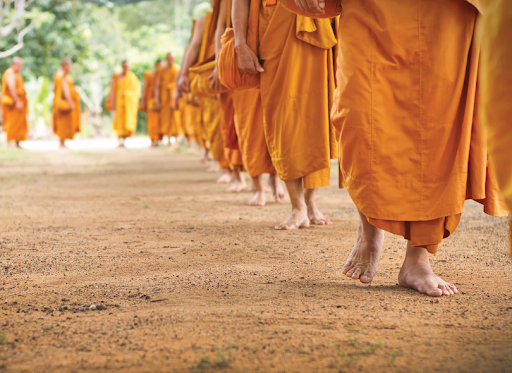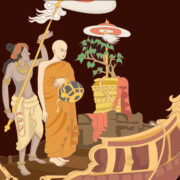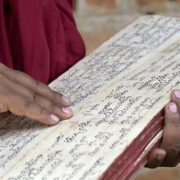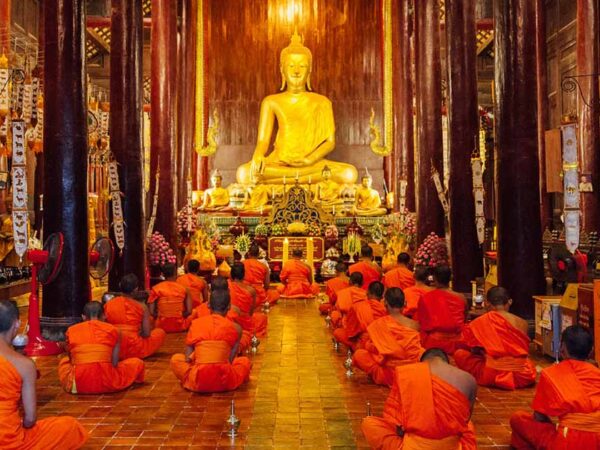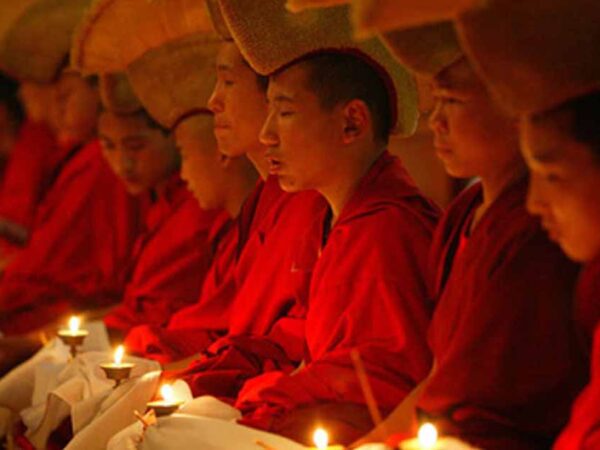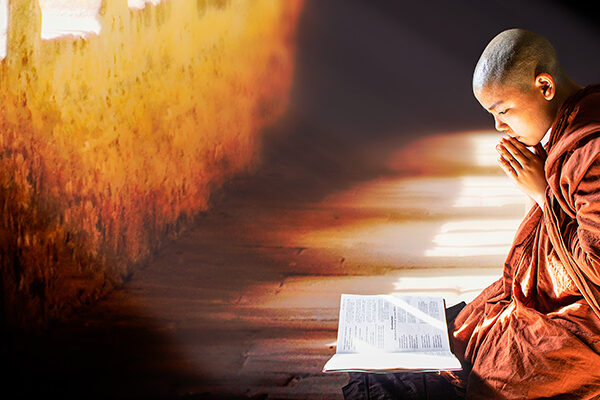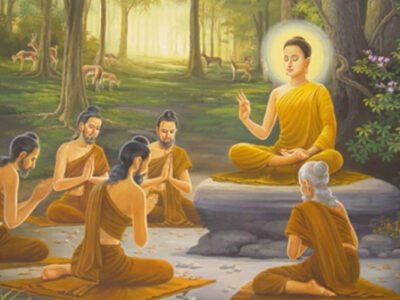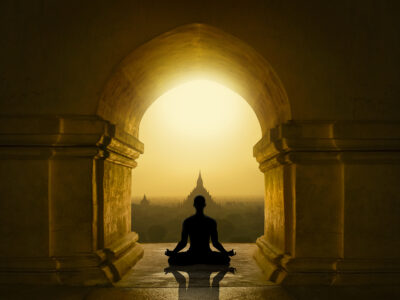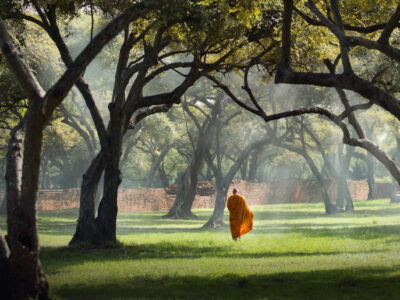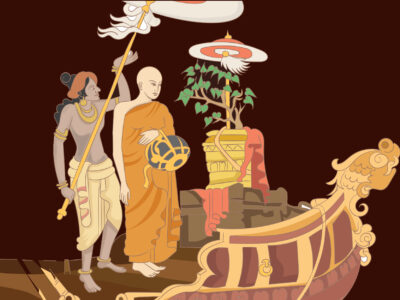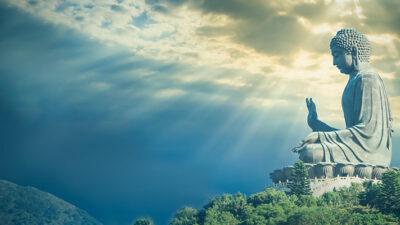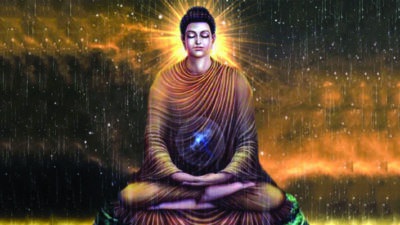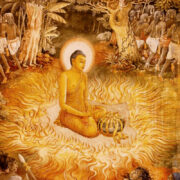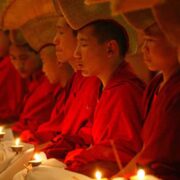Jawaharlal Nehru said:
“The Buddha has been something greater than all doctrine and dogma, and his eternal message has thrilled humanity through the ages. Perhaps at no time in past history was his message of peace more needed for a suffering and distracted humanity than it is today.”
The Buddha has made India great in the world, and has created conditions by which we could rise once again to great heights in all fields of human affairs.
One fifth of humanity who are Buddhists, all over the world, still regard India as their ‘holy land.’
Not only Buddha’s followers and admirers, but the entire academic world historians, archeologists, philosophers, scientists, scholars and writers of all branches of knowledge – value India as the land that gave birth to the supremely Enlightened Buddha whose spiritual discoveries and noble teachings have established an enduring world religion, a global humanistic culture and civilization. The profound and far-reaching influence which Buddhism has been exerting over mankind through 2,600 years is a universally accepted fact of world history.
Religion and culture do affect, often significantly, even such mundane matters as economic and political relations. Today the Buddhist countries have acquired tremendous economic and political clout in international dealings. The global interdependence makes it an imperative for India to forge very close and fraternal links with Buddhist nations for security and development. These international implications reveal the immense relevance of the Buddha today for India’s present and future progress and prosperity.
Said the Buddha:
“The ocean has only one taste, that of salt. The Buddha’s Dhamma (Teaching) has but one taste, the taste of freedom.”
Since Prince Siddhartha Gotama became the Buddha almost 2,600 years ago and set in motion the wheel of his noble Teaching – Dhammacakka Pavattana. Since then countless men and women have realized the freedom of Nibbana. Countless others, through the centuries continue to win freedom which means two things: Firstly, deliverance from samsara – the rounds of recurring existence, of karma and rebirth. Secondly, freedom from worldly bonds made up of the myriad forms of social deprivation, injustice, oppression and exploitation.
Today with the revival of Buddhism in India, vast numbers of down– trodden people have found freedom from centuries of immense social discrimination and deprivation. Having found a secure refuge (saranam) in the Buddha-Sasana the Lord’s emancipating dispensation; teeming millions of Indians breathe the air of freedom and equality. This reveals the immense relevance of the Buddha today.
“On reaching the ocean, all rivers abandon their names. On taking refuge in the Buddha, his Dhamma and Sangha, people from all castes and races abandon their sectarian identities,” said Bhagavan Buddha. To all right thinking and open-minded people, both in India and abroad, the historic social change brought about by the revival of Buddhism is quite clear. As the light of the Enlightened One keeps spreading progressively and the truths of spiritual discovery (Bodhi) sink deeper in the hearts of the Indian masses, the evils of caste system and the machinations of communal forces will inevitably die out. The phenomenal social emancipation occurring today reveals the Buddha’s contribution towards Indian’s progress and prosperity.
Today, more than ever before, the wisest of men, seeing the world torn by ethnic turmoil and fundamentalist bigotry and violence, acclaim in voice the need for the Buddha’s message of moderation and peaceful co-existence.
-
- Albert Einstein, father of modern science, says: “The religion of the future will be a cosmic religion. It should transcend a personal god and avoid dogmas and theology. Covering both the natural and the spiritual, it should be based on a religious sense arising from the experience of all things, natural and spiritual, as a meaningful unity. Buddhism answers the description.” Further, he said, “If there is any religion that would cope with modern scientific needs it would be Buddhism.” Einstein’s characterization of Buddhism as cosmic religion is very apt. Buddhism is based on the Four Noble Truths which encompass all realms of existence, therefore includes things natural, spiritual and celestial. Buddha’s dispensation extends to both human and divine beings.
- H. G. Wells, the distinguished historian, says to his ‘Outline of History’ “Buddhism has done more for the advance of world civilization and true culture than any other influence in the chronicle of mankind.”
- Abdul Atahiya, a Muslim savant, says: “If you desire to see the most noble of mankind, look at the king to beggar’s clothing’ it is he whose sanctity is great among men.”
- Edwin Arnold, in his immortal book of poetry, “The light of Asia” described the Buddha thus:“This is the blossom in our human tree which opens in many a myriad years:But opened, fills the world with wisdom’s scent.And love’s dropped honey.”
- Arnold Toynbee, the great historian and thinker, was asked before he died.
- Q. “What brought the most significant change of our century?”
- A. “Well, the most significant change was brought not by the invention of the automobile, or the T.V. or the nuclear bomb, but by the coming of Buddhism to the West.”
– Utne, Yoga Journal
These sincere tributes reveal the immense relevance of the Buddha throughout our planet. He is honoured by all informed and cultured men and women irrespective of their religious affiliations. India too has joined the world in welcoming the Wisest of the Wise. Today Indians in numbers do earnestly pray:
May the Bringer of Light, Lord Buddha Kindle our hearts with the Light of Truth!
The inner darkness that divides Indians, rouses suspicion and hate among them, may that darkness be dispelled by the Buddha, the spiritual Sun, risen in India’s firmament.
(Kind Courtesy – Dhamma Annual – 1994)

